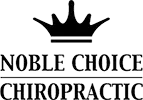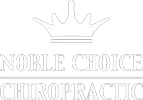Concussion
Concussions occur when a sudden movement causes the brain to bounce or twist in the skull, creating chemical changes in the brain and sometimes damaging and stretching brain cells. It is usually the result of a car accident or high-impact sports injury.
Concussions can cause memory problems, confusion, trouble concentrating, mood or personality changes, headaches, nausea and vomiting, dizziness, blurry vision, grogginess, and sensitivity to light and sound. Symptoms may appear soon after the injury, but it could take hours or days. Many people suffer from a condition known as post-concussion syndrome, where concussion symptoms can linger for months.
Neck Pain
Forceful whiplash movement can damage vertebral discs, nerves, and muscles, resulting in pain from several potential sources. It’s essential to have a chiropractor take stock of the situation after an auto injury or sports injury to determine the root cause of the pain and the best way to move forward.
Chiropractic adjustments can help to realign any bones (subluxations) that have been knocked out of place and improve range of motion. Soft tissue work can help restore muscle balance and function, and corrective exercises can help improve muscle stability.
Headaches
Muscle tension, instability, nerve interference, and disc injury can all lead to headaches. The back-and-forth motion of a car accident or sports injury can injure the cervical facet joints causing inflammation and irritation of the nerves in the brainstem and spinal cord.
A whiplash headache is usually indistinguishable from other headaches, and symptoms may occur immediately or after several days. Additionally, women are more susceptible to headaches after a whiplash injury. About 80% of people who experience whiplash develop a chronic headache without proper treatment.
Shoulder Pain
Depending on the force of an auto accident or sports injury, the shoulder may sprain or strain causing pain and irritation. Stability is a crucial factor in shoulder pain. Damaged ligaments can create a loose joint, so mobilization is not always ideal. Corrective exercises to increase the strength of stabilizing muscles are essential.
Back Pain
A disc injury, herniated disc, or bulging disc after a car accident can lead to back pain. Injured discs tear and irritate the nerves causing pain to radiate through the nerve pathway. Depending on which nerves are aggravated, pain, numbness, and tingling could radiate down the legs and even into the arms. Chiropractic adjustments can aid in the recovery of discs by alleviating pressure.


